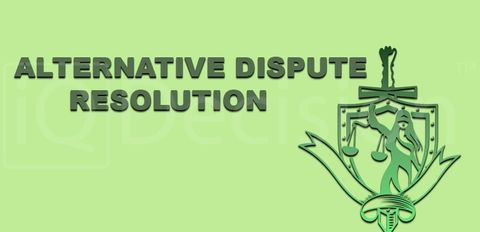Unlike litigation, ADR (or Alternative Dispute Resolution) is a less costly & more peaceful way of resolving commercial disputes. There’s many different forms of ADR, each of which can be used in specific situations & at specific stages of disputes. So, let’s take a closer look at the various ADR tools & methods, as well as the role played by informal negotiations in settling financial disputes.
When is ADR Used?
ADR is frequently used if:
- there’s a dispute between two or more parties which may lead to litigation;
- a lawsuit is filed & a company risks losing a lot of money & time;
- resolving a dispute by means of litigation may adversely impact relationships between parties.
Basically, ADR makes it possible to resolve a financial dispute without going to court.
ADR: A Way to Avoid Litigation
Conducting informal negotiations can be the cheapest & fastest way of putting an end to a dispute. While negotiating, parties can enlist the help of solicitors, but that’s optional. Depending on the nature of a dispute, this method of settling disputes can be very effective, especially when maintaining good relationships between parties is absolutely crucial.
ADR: Basic Negotiating Principles
- While negotiating, parties should demonstrate to each other that they’re not biased or prejudiced. If a dispute isn’t resolved by the end of negotiations, anything discussed in the course of negotiations may not be used as evidence during court proceedings (until an agreement is reached).
- Only those that have the authority to put the parties at the negotiating table (i.e. a CEO of an organization or chief solicitor who’s been delegated the authority to resolve a dispute) should be allowed to participate in the settlement of a dispute.
- Once a dispute is resolved, it’s necessary to make sure that there’s no misunderstanding between parties regarding settlement terms. Ensuring this requires signing a settlement agreement which sets forth the conditions for settling a financial dispute abundantly clear.
- Determining in advance where compromises can be made & where one’s position should remain unchanged is key. Understanding what’s important to one’s counterparty, as well as how a deal that will allow them to win or maintain their reputation can be reached, is also important.
Following the rules set forth above makes it possible to resolve commercial disputes wholly or partially.
Of course, informal negotiations between the parties may not be appropriate for all disputes. In some cases, using formal written proposals can play an important role & contribute to a faster settlement of a dispute.
Facing a dispute? Need assistance in resolving a dispute by means other than litigation? IQ Decision UK is the answer. Our team of experienced professionals is always ready to provide advice on dispute resolution.


















